“Well, God has arrived. I met him on the 5:15 train. He has a plan to stay in Cambridge permanently.”
—John Maynard Keynes in a letter to his wife describing Ludwig Wittgenstein (1929)
Somewhere along the crooked scar of the eastern front, during those acrid summer months of the Brusilov Offensive in 1916, when the Russian Empire pierced into the lines of the Central Powers and perhaps more than one million men would be killed from June to September, a howitzer commander stationed with the Austrian 7th Army would pen gnomic observations in a notebook, having written a year before that the “facts of the world are not the end of the matter.” Among the richest men in Europe, the 27-year-old had the option to defer military service, and yet an ascetic impulse compelled Ludwig Wittgenstein into the army, even though he lacked any patriotism for the Austro-Hungarian cause. Only five years before his trench ruminations would coalesce into 1921’s Tractatus Logico-Philosophicus, and the idiosyncratic contours of Wittgenstein’s thinking were already obvious, scribbling away as incendiary explosions echoed across the Polish countryside and mustard gas wafted over fields of corpses. “When my conscience upsets my equilibrium, then I am not in agreement with something. But is this? Is it the world?” he writes. Wittgenstein is celebrated and detested for this aphoristic quality, with pronouncements offered as if directly from the Sibylline grove. “Philosophy,” Wittgenstein argued in the posthumously published Culture and Value, “ought really to be written only as poetic composition.” In keeping with its author’s sentiment, I’d claim that the Tractatus is less the greatest philosophical work of the 20th century than it is one of the most immaculate volumes of modernist poetry written in the past hundred years.
The entire first chapter is only seven sentences, and can easily be arranged as a stanza read for its prosody just as easily as a logician can analyze it for rigor:
The world is all that is the case.
The world is the totality of facts, not of things.
The world is determined by the facts, and by their being all the facts.
For the totality of facts determines what is the case, and also whatever is not the case.
The facts in logical space are the world.
The world divides into facts.
Each item can be the case or not the case while everything else remains the same.
Its repetition unmistakably evokes poetry. The use of anaphora with “The world” at the beginning of the first three lines (and then again at the start of the fifth). The way in which each sentence builds to a crescendo of increasing length, from starting with a simple independent clause to a trio of lines that are composed of independent and dependent clauses, hitting a peak in the exact middle of the stanza, and then returning to independent clauses, albeit the final line being the second longest sentence in the poem. Then there is the diction, the reiteration of certain abstract nouns in place of concrete images—”world,” ‘facts,” “things.” In Wittgenstein’s thought these have definite meanings, but in a general sense they’re also words that are pushed to an extreme of conceptual intensity. They are as vague as is possible, while still connotating a definite something. If Wittgenstein mentioned red wheelbarrows and black petals, it might more obviously read as poetry, but what he’s doing is unique; he’s building verse from the constituent atoms of meaning, using the simplest possible concepts that could be deployed. Finally, the inscrutable nature of Wittgenstein’s pronouncements is what gives him such an oracular aura. If the book is confusing, that’s partially the point. It’s not an argument, it’s a meditation, a book of poetry that exists to do away with philosophy.
Published a century ago this spring, the Tractatus is certainly one of the oddest books in the history of logic, structured in an unconventional outline of unspooling pronouncements offered without argument, as well as a demonstration of philosophy’s basic emptiness, and thus the unknowability of reality. All great philosophers claim that theirs is the work that demolishes philosophy, and Wittgenstein is only different in that the Tractatus actually achieves that goal. “Most of the propositions and questions to be found in philosophical works are not false but nonsensical,” writes Wittgenstein. “Consequently, we cannot give any answer to questions of this kind,” where “of this kind” means all of Western philosophy. What results is either poetry transubstantiated into philosophy or philosophy converted into poetry, with the Tractatus itself a paradox, a testament to language that shows the limits of language, where “anyone who understands me eventually recognizes… [my propositions] as nonsensical…He must, so to speak, throw away the ladder after he has climbed up it.” The Tractatus is a self-immolating book, a work that exists to demonstrate its own futility in existing. At its core are unanswerable questions of silence, meaninglessness, and unuttered poetry. The closest that Western philosophy has ever come to the Tao.
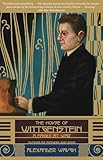 Of the Viennese Wittgensteins, Ludwig was raised in an atmosphere of unimaginable wealth. As a boy, the salons of the family mansions (there were 13 in the capital alone) were permeated with the music of Gustav Mahler and Johannes Brahms (performed by the composers themselves), the walls were lined with commissioned golden-shimmer paintings by Gustave Klimt, and the rocky bespoke sculptures of August Rodin punctuated their courtyards. “Each of the siblings was made exceedingly rich,” writes Alexander Waugh in The House of Wittgenstein (and he knows about difficult families), “but the money, to a family obsessed with social morality, brought with it many problems.” Committed to utmost seriousness, dedication, and genius, the Wittgensteins were a cold family, the children forced to live up to the exacting standards of their father Karl Otto Clemens Wittgenstein. Ludwig’s father was an iron man, the Austrian Carnegie, and the son was indulged with virtually every privilege imaginable in fin de siècle Vienna. His four brothers were to be trained for industry, and to be patrons of art, music, poetry, and philosophy, with absolutely no failure in any regard to be countenanced. Only a few generations from the shtetl, the Wittgensteins had assimilated into gentile society, most of them converting to Catholicism, along with the few odd Protestants; Ludwig’s grandfather even had the middle name “Christian” as if to underscore their new position. Wittgenstein had a life-long ambivalence about his own Jewishness—even though three of his four grandparents were raised in the faith—and he had an attraction to a type of post-theological mystical Christianity, while he also claimed that his iconoclastic philosophy was “Hebraic.”
Of the Viennese Wittgensteins, Ludwig was raised in an atmosphere of unimaginable wealth. As a boy, the salons of the family mansions (there were 13 in the capital alone) were permeated with the music of Gustav Mahler and Johannes Brahms (performed by the composers themselves), the walls were lined with commissioned golden-shimmer paintings by Gustave Klimt, and the rocky bespoke sculptures of August Rodin punctuated their courtyards. “Each of the siblings was made exceedingly rich,” writes Alexander Waugh in The House of Wittgenstein (and he knows about difficult families), “but the money, to a family obsessed with social morality, brought with it many problems.” Committed to utmost seriousness, dedication, and genius, the Wittgensteins were a cold family, the children forced to live up to the exacting standards of their father Karl Otto Clemens Wittgenstein. Ludwig’s father was an iron man, the Austrian Carnegie, and the son was indulged with virtually every privilege imaginable in fin de siècle Vienna. His four brothers were to be trained for industry, and to be patrons of art, music, poetry, and philosophy, with absolutely no failure in any regard to be countenanced. Only a few generations from the shtetl, the Wittgensteins had assimilated into gentile society, most of them converting to Catholicism, along with the few odd Protestants; Ludwig’s grandfather even had the middle name “Christian” as if to underscore their new position. Wittgenstein had a life-long ambivalence about his own Jewishness—even though three of his four grandparents were raised in the faith—and he had an attraction to a type of post-theological mystical Christianity, while he also claimed that his iconoclastic philosophy was “Hebraic.”

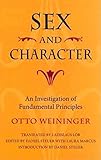
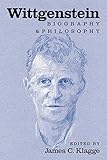 Even more ironically, or perhaps uncannily, Wittgenstein was only the second most famous graduate of Vienna’s secondary Realschule; the other student was Adolph Hitler. There’s a class photograph from 1905 featuring both of them when they were 16. As James Klaage notes in Wittgenstein: Philosophy and Biography, “an encounter with Wittgenstein’s mind would have created resentment and confusion in someone like Hitler,” while to great controversy (and thin evidence) Kimberly Cornish in The Jew of Linz claims that the philosopher had a profound influence on the future dictator, inadvertently inspiring the latter’s antisemitism. Strangely, like many assimilated and converted Jews within Viennese society, a casual antisemitism prevailed among the Wittgensteins. He would even be attracted to the writings of the pseudo-philosopher Otto Weininger, who in his book Sex and Character promulgated a notoriously self-hating antisemitic and misogynistic position, deploring modernity as the “most effeminate of all ages” (the author would ultimately commit suicide in the house where Beethoven had lived as an act of Völkisch sacrifice). When promoting the book, Wittgenstein maintained that he didn’t share in Weininger’s views, but rather found the way the writer was so obviously wrong interesting. Jewishness was certainly not to be discussed in front of the Wittgenstein paterfamilias, nor was anything that to their father reeked of softness, gentleness, or effeminacy, including Ludwig’s bisexuality, which he couldn’t express until decades later. And so at the risk of indulging an armchair version of that other great Viennese vocation of psychoanalysis, Wittgenstein made the impossibility of being able to say certain things the center of his philosophy. As Brahms had remembered, the family chillily acted “towards one another as if they were at court.” Of his four brothers—Rudi drank a mixture of cyanide and milk while in a Berlin cabaret in 1922, distraught over his homosexuality and his father’s rejection; Kurt shot himself in the dwindling days of the Great War after his troops defied him; and Hans, the oldest and a musical prodigy, presumably drowned himself in Chesapeake Bay while on an American sojourn in 1902—only Paul and Ludwig avoided suicide. There were economic benefits to being a Wittgenstein, but little else.
Even more ironically, or perhaps uncannily, Wittgenstein was only the second most famous graduate of Vienna’s secondary Realschule; the other student was Adolph Hitler. There’s a class photograph from 1905 featuring both of them when they were 16. As James Klaage notes in Wittgenstein: Philosophy and Biography, “an encounter with Wittgenstein’s mind would have created resentment and confusion in someone like Hitler,” while to great controversy (and thin evidence) Kimberly Cornish in The Jew of Linz claims that the philosopher had a profound influence on the future dictator, inadvertently inspiring the latter’s antisemitism. Strangely, like many assimilated and converted Jews within Viennese society, a casual antisemitism prevailed among the Wittgensteins. He would even be attracted to the writings of the pseudo-philosopher Otto Weininger, who in his book Sex and Character promulgated a notoriously self-hating antisemitic and misogynistic position, deploring modernity as the “most effeminate of all ages” (the author would ultimately commit suicide in the house where Beethoven had lived as an act of Völkisch sacrifice). When promoting the book, Wittgenstein maintained that he didn’t share in Weininger’s views, but rather found the way the writer was so obviously wrong interesting. Jewishness was certainly not to be discussed in front of the Wittgenstein paterfamilias, nor was anything that to their father reeked of softness, gentleness, or effeminacy, including Ludwig’s bisexuality, which he couldn’t express until decades later. And so at the risk of indulging an armchair version of that other great Viennese vocation of psychoanalysis, Wittgenstein made the impossibility of being able to say certain things the center of his philosophy. As Brahms had remembered, the family chillily acted “towards one another as if they were at court.” Of his four brothers—Rudi drank a mixture of cyanide and milk while in a Berlin cabaret in 1922, distraught over his homosexuality and his father’s rejection; Kurt shot himself in the dwindling days of the Great War after his troops defied him; and Hans, the oldest and a musical prodigy, presumably drowned himself in Chesapeake Bay while on an American sojourn in 1902—only Paul and Ludwig avoided suicide. There were economic benefits to being a Wittgenstein, but little else.

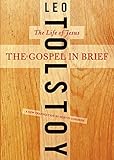 Austere Ludwig—a cinema-handsome man with a personality somehow both dispassionate and intense—tried to methodically shuffle off his wealth, which had hung from his neck along with the anchor of respectability. As it was, eventually the entire fortune would be commandeered by the Nazis, but before that Wittgenstein dispensed with his inheritance literally. When his father died in 1913, Wittgenstein began anonymously sending large sums of money to poets like Rainer Maria Rilke, whose observation in a 1909 lyric that “I am so afraid of people’s words./They describe so distinctly everything” reads almost as a gloss on the Tractatus. With his new independence, Wittgenstein moved to simple log cabin on a Norwegian fjord where he hoped to revolutionize logic. Attracted towards the austere, this was the same Wittgenstein whom in 1923, after the Tractatus had been published, lodged above a grocer in rural Austria and worked as a school teacher, with the visiting philosopher Frank Ramsey describing one of the richest men in Europe as living in “one tiny room, whitewashed, containing a bed, washstand, small table and one hard chair and that is all there is room for. His evening meal which I shared last night is rather unpleasant coarse bread, butter and cocoa.” Monasticism served Wittgenstein, because he’d actually accomplish that task of revolutionizing philosophy. From his trench meditations while facing down the Russians—where he ironically carried only two books—Fyodor Dostoevsky’s The Brothers Karamazov and Leo Tolstoy’s The Gospel in Brief —he birthed the Tractatus, holding to Zossima’s commandment that one should “Above all, avoid falsehood, every kind of falsehood.” The result would be a book whose conclusions were completely true without being real. Logic pushed to the extremes of prosody.
Austere Ludwig—a cinema-handsome man with a personality somehow both dispassionate and intense—tried to methodically shuffle off his wealth, which had hung from his neck along with the anchor of respectability. As it was, eventually the entire fortune would be commandeered by the Nazis, but before that Wittgenstein dispensed with his inheritance literally. When his father died in 1913, Wittgenstein began anonymously sending large sums of money to poets like Rainer Maria Rilke, whose observation in a 1909 lyric that “I am so afraid of people’s words./They describe so distinctly everything” reads almost as a gloss on the Tractatus. With his new independence, Wittgenstein moved to simple log cabin on a Norwegian fjord where he hoped to revolutionize logic. Attracted towards the austere, this was the same Wittgenstein whom in 1923, after the Tractatus had been published, lodged above a grocer in rural Austria and worked as a school teacher, with the visiting philosopher Frank Ramsey describing one of the richest men in Europe as living in “one tiny room, whitewashed, containing a bed, washstand, small table and one hard chair and that is all there is room for. His evening meal which I shared last night is rather unpleasant coarse bread, butter and cocoa.” Monasticism served Wittgenstein, because he’d actually accomplish that task of revolutionizing philosophy. From his trench meditations while facing down the Russians—where he ironically carried only two books—Fyodor Dostoevsky’s The Brothers Karamazov and Leo Tolstoy’s The Gospel in Brief —he birthed the Tractatus, holding to Zossima’s commandment that one should “Above all, avoid falsehood, every kind of falsehood.” The result would be a book whose conclusions were completely true without being real. Logic pushed to the extremes of prosody.
The Tractatus was the only complete book Wittgenstein published in his lifetime, and the slender volume is composed of a series of propositions arranged within one another like an onion. Its seven main propositions are asserted axiomatically, their self-evidence stated without argument or equivocation—a book not of examples or evidence, but of sentences. A Euclidean project that reads as if hermetic poetry, with claims like “A logical picture of facts is a thought,” which in its poetic abstractions is evocative of something like John Keats’s “Truth is beauty.” Part of its literary quality is the way in which these claims are presented as crystalline abstractions, appearing as timeless refugees from eternity, bolstered not by recourse to anything but themselves (indeed the Tractatus contains no quotes from other philosophers, and virtually no references). His concern was the relationship between language and reality, how logic is able (or not able) to offer a picture of the world, and his conclusions circumscribe philosophy— he solves all metaphysical problems by demonstrating that they are meaningless. “Philosophy aims at the logical clarification of thoughts,” writes Wittgenstein. “Philosophy is not a body of doctrine but an activity… essentially of elucidations.” All of the problems of philosophy—the paradoxes and metaphysical conundrums, the ethical imperatives and the aesthetic judgments—are pseudo-problems. Philosophy exists not to do what natural science does; it doesn’t explain reality, it only clarifies language. When you come to Ludwig Wittgenstein on the road, you must kill him. The knife that you use is entitled the Tractatus, and he’ll hand it to you first.
 When Wittgenstein arrived at the Cambridge University office of the great British philosopher Bertrand Russell in 1911, he had no formal training. So bereft was his knowledge that Wittgenstein couldn’t pronounce some of the philosophers’ names correctly. Biographer Ray Monk maintains in Ludwig Wittgenstein: The Duty of Genius that his subject had never even read Aristotle (despite sharing an affinity with him). And yet a few months into their studies together, the latter would declare “I love him & feel he will solve the problems that I am too old to solve.” Though after the Austrian had argued that metaphysical problems are simply an issue of linguistic confusion, the elder thinker would despair that “I could not hope ever again to do fundamental work in philosophy.” At the time that Wittgenstein met with Russell, he was studying aeronautical engineering at the University of Manchester, pushed into a practical field by his father. During his time there he invented several different metal airplane propeller blades exemplary in their ingenuity, but he was unfulfilled and despondent. He had come to believe that only philosophy could cure his spiritual malaise, and so Wittgenstein spent three years at Cambridge, where he travelled in intellectual circles that included the philosopher G.E. Moore and the economist John Maynard Keynes. Finally, he was also able to live openly with a lover, a psychologist named David Pinsent. He would dedicate the Tractatus to Pinsent, his partner ironically killed in an airplane crash training for the war that they fought on the opposite sides of. After his return to Austria, Wittgenstein worked a multitude of disparate jobs—he was a school-teacher in the Alps, unpopular for discharging corporal punishment; he was a gardener in a monastery (and inquired about taking vows); and he was an architect of uncommon brilliance, designing a modernist masterpiece for his sister called the Haus Wittgenstein, which in its alabaster parsimony and cool rectilinear logic recalls the Bauhaus. When that building was completed in 1929, Wittgenstein finally returned to Cambridge, where he would be awarded a PhD even though he took no courses and sat for no exams. Russell had recognized that not all genius need be constrained in the seminar room. And still, after his successful defense, Wittgenstein would clap his advisor on his shoulder and say “Don’t worry, I’ll know you’ll never understand it.” Years latter Russell would remark that he had only produced snowballs—Wittgenstein had generated avalanches.
When Wittgenstein arrived at the Cambridge University office of the great British philosopher Bertrand Russell in 1911, he had no formal training. So bereft was his knowledge that Wittgenstein couldn’t pronounce some of the philosophers’ names correctly. Biographer Ray Monk maintains in Ludwig Wittgenstein: The Duty of Genius that his subject had never even read Aristotle (despite sharing an affinity with him). And yet a few months into their studies together, the latter would declare “I love him & feel he will solve the problems that I am too old to solve.” Though after the Austrian had argued that metaphysical problems are simply an issue of linguistic confusion, the elder thinker would despair that “I could not hope ever again to do fundamental work in philosophy.” At the time that Wittgenstein met with Russell, he was studying aeronautical engineering at the University of Manchester, pushed into a practical field by his father. During his time there he invented several different metal airplane propeller blades exemplary in their ingenuity, but he was unfulfilled and despondent. He had come to believe that only philosophy could cure his spiritual malaise, and so Wittgenstein spent three years at Cambridge, where he travelled in intellectual circles that included the philosopher G.E. Moore and the economist John Maynard Keynes. Finally, he was also able to live openly with a lover, a psychologist named David Pinsent. He would dedicate the Tractatus to Pinsent, his partner ironically killed in an airplane crash training for the war that they fought on the opposite sides of. After his return to Austria, Wittgenstein worked a multitude of disparate jobs—he was a school-teacher in the Alps, unpopular for discharging corporal punishment; he was a gardener in a monastery (and inquired about taking vows); and he was an architect of uncommon brilliance, designing a modernist masterpiece for his sister called the Haus Wittgenstein, which in its alabaster parsimony and cool rectilinear logic recalls the Bauhaus. When that building was completed in 1929, Wittgenstein finally returned to Cambridge, where he would be awarded a PhD even though he took no courses and sat for no exams. Russell had recognized that not all genius need be constrained in the seminar room. And still, after his successful defense, Wittgenstein would clap his advisor on his shoulder and say “Don’t worry, I’ll know you’ll never understand it.” Years latter Russell would remark that he had only produced snowballs—Wittgenstein had generated avalanches.
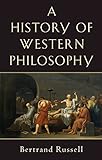
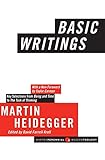 Hubris aside, Wittgenstein was dogged by a not unfounded fear that the Tractatus would be misinterpreted, not least of all by analytical philosophers like Russell who valorized logic as holy writ. Twentieth-century philosophy has long suffered schism between two broadly irreconcilable perspectives on what the discipline even exists to do. There are the analytical philosophers like Russell, Gottlieb Frege, G.E. Moore, and so on (including, technically, Wittgenstein), who see the field as indistinguishable from logic, to the point where its practice shares more in common with mathematics than Socrates. Largely focused in the United Kingdom and the United States, analytical philosophers are, as Russell writes in his A History of Western Philosophy (the work which secured his Nobel Prize in Literature), unified in a sense of “scientific truthfulness, by which I mean the habit of basing our beliefs upon observations and inferences as impersonal…as is possible for human beings.” Continental philosophy, however, is much more concerned with the traditional metaphysical and ethical questions which we associate with the discipline, asking what the proper way to live is, or how we find meaning in life. Associated with scholarly work in Europe, largely in France and Germany, a primary question to a continental philosopher like Martin Heidegger could be, as he writes in What Is Metaphysics?, “Why are there things at all, and why not nothing? This is the question.” To Russell that’s not a question at all, it’s pure nonsense. Wittgenstein would perhaps also see it as meaningless—though not at all in the same way as his advisor, and that makes all the difference. As with his interpretation of Weininger, it’s how things are nonsense that’s interesting.
Hubris aside, Wittgenstein was dogged by a not unfounded fear that the Tractatus would be misinterpreted, not least of all by analytical philosophers like Russell who valorized logic as holy writ. Twentieth-century philosophy has long suffered schism between two broadly irreconcilable perspectives on what the discipline even exists to do. There are the analytical philosophers like Russell, Gottlieb Frege, G.E. Moore, and so on (including, technically, Wittgenstein), who see the field as indistinguishable from logic, to the point where its practice shares more in common with mathematics than Socrates. Largely focused in the United Kingdom and the United States, analytical philosophers are, as Russell writes in his A History of Western Philosophy (the work which secured his Nobel Prize in Literature), unified in a sense of “scientific truthfulness, by which I mean the habit of basing our beliefs upon observations and inferences as impersonal…as is possible for human beings.” Continental philosophy, however, is much more concerned with the traditional metaphysical and ethical questions which we associate with the discipline, asking what the proper way to live is, or how we find meaning in life. Associated with scholarly work in Europe, largely in France and Germany, a primary question to a continental philosopher like Martin Heidegger could be, as he writes in What Is Metaphysics?, “Why are there things at all, and why not nothing? This is the question.” To Russell that’s not a question at all, it’s pure nonsense. Wittgenstein would perhaps also see it as meaningless—though not at all in the same way as his advisor, and that makes all the difference. As with his interpretation of Weininger, it’s how things are nonsense that’s interesting.
In the city of Wittgenstein’s birth, the dominant philosophical movement at the time he published the Tractatus was a gathering of analytical philosophers known as the Vienna Circle. Composed of figures like Moritz Schlick, Rudolf Carnap, and Kurt Gödel, the Vienna Circle argued something not dissimilar to what Wittgenstein had claimed, understanding metaphysical, ethical, and aesthetic conjectures as nonsense. At the core of much of their work was something called the Verification Principle, an argument that the only propositions that are sensical are from either deduction or induction, either from mathematics or empiricism, and that everything else can be discarded (that the Verification Principle would fail its own test wasn’t important). But if the Vienna Circle agreed with Wittgenstein about how much of traditional philosophy was nonsense, the latter invested that nonsense with a sublimity they were blind toward. Perhaps the earliest to misinterpret the Tractatus, of which the Vienna Circle were nonetheless avid readers, Schlick invited Wittgenstein to address them in 1926. When he arrived, rather than giving a lecture, Wittgenstein turned a chair to the wall, began to rock back and forth and recited the verse of the Bengali poet Rabindranath Tagore. An arresting and moving scene: handsome Wittgenstein in rumpled blue shirt and tweed jacket, a man whom the American philosopher Norman Malcolm would describe as possessing a face that was “lean and brown…aquiline and strikingly beautiful, his head was covered with a curly mass of brown hair,” davening as was the ritual of his ancestors, perhaps chanting Tagore’s line from The Gardner that “We do not stray out of all words in the ever silent,” a disposition more in keeping with the Tractatus than anything written by the audience. Carnap, to his credit, quickly realized their mistake, recalling that Wittgenstein’s point of view was “much more similar to those of a creative artist than to those of a scientist; one might almost say, similar to those of a religious prophet or a seer.”
 Though classified as one of the most important logicians of the 20th century, Wittgenstein’s earlier thought is more poetry than philosophy; the curt, aphoristic pronouncements of the Tractatus deserving to be studied alongside Rilke and Paul Celan. Both in form and content, purpose and expression, the Tractatus is lyric verse—it’s poetry that gestures beyond poetry. More than just poetry, it’s a purposefully self-defeating logical argument that exonerates the poetic above the philosophical, for if the Vienna Circle thought that all of the most interesting things were nonsense, then Wittgenstein knew that faith was the very essence of being, even if we could say nothing definitive about it. As he writes in the Tractatus, “even when all possible scientific questions have been answered, the problems of life remain completely untouched. Of course, there are then no questions left, and this itself is the answer.” Something Taoist about Wittgenstein, his utterances evocative of Lao Tzu’s contention in the Tao Te Ching that the “name that can be named is not the eternal name.” With the Tractatus, Wittgenstein mounted the most audacious ars poetica, a book of verse written not in rhythm and meter but in logic, where the purpose was to show the futility of logic itself. “Whereof one cannot speak, thereof one must remain silent;” its most famous line, and the entirety of the last chapter. Things must be left unsaid because they’re unable to be said—but literally everything important is unable to be said. Understood as a genius, interpreted as a rationalist, treated as an enigma, and appearing as a mystic, Wittgenstein was ultimately a poet. “The limits of my language are the limits of my world,” writes Wittgenstein, and this is sometimes misunderstood as consigning everything but logic to oblivion, but the opposite is true. In a world limited by language, then it is language itself that constitutes the world. Poetry, rather than logic, is all that is the case.
Though classified as one of the most important logicians of the 20th century, Wittgenstein’s earlier thought is more poetry than philosophy; the curt, aphoristic pronouncements of the Tractatus deserving to be studied alongside Rilke and Paul Celan. Both in form and content, purpose and expression, the Tractatus is lyric verse—it’s poetry that gestures beyond poetry. More than just poetry, it’s a purposefully self-defeating logical argument that exonerates the poetic above the philosophical, for if the Vienna Circle thought that all of the most interesting things were nonsense, then Wittgenstein knew that faith was the very essence of being, even if we could say nothing definitive about it. As he writes in the Tractatus, “even when all possible scientific questions have been answered, the problems of life remain completely untouched. Of course, there are then no questions left, and this itself is the answer.” Something Taoist about Wittgenstein, his utterances evocative of Lao Tzu’s contention in the Tao Te Ching that the “name that can be named is not the eternal name.” With the Tractatus, Wittgenstein mounted the most audacious ars poetica, a book of verse written not in rhythm and meter but in logic, where the purpose was to show the futility of logic itself. “Whereof one cannot speak, thereof one must remain silent;” its most famous line, and the entirety of the last chapter. Things must be left unsaid because they’re unable to be said—but literally everything important is unable to be said. Understood as a genius, interpreted as a rationalist, treated as an enigma, and appearing as a mystic, Wittgenstein was ultimately a poet. “The limits of my language are the limits of my world,” writes Wittgenstein, and this is sometimes misunderstood as consigning everything but logic to oblivion, but the opposite is true. In a world limited by language, then it is language itself that constitutes the world. Poetry, rather than logic, is all that is the case.
The post The World Is All That Is the Case appeared first on The Millions.
Source : The World Is All That Is the Case













